Home | Major Sporting Events | Canada Games
Inspiring Dreams and Building Champions
PreviousNext
The Canada Games 'celebrate youth, sport, culture and community' by bringing together young athletes from each of the nation's ten provinces and three territories. Organizers promoted the idea of developing a national multi-sport event uniting young athletes across Canada as early as 1924. In 1967, the year of the Canadian Centennial celebration, the first Canada Winter Games were held in Quebec City, bringing together 1,800 athletes to compete in 15 different sports.
The unifying effect of the competition's early years, which pledged athletes "in victory or defeat" to kindle "a fraternal spirit with...fellow Canadians," was palpable at the first Canada Summer Games, held in Halifax/Dartmouth in1969. Spectators attending the opening ceremonies were moved to tears as young Canadians from all corners of the country marched together in front of cheering crowds. At closing ceremonies, "sportsmanship turned into comradeship" as competitors originally separated into provincial groups broke ranks and marched together arm in arm to salute visiting dignitaries.
Intended to inspire and unite the next generation of national athletes, the Canada Games have powerfully reflected "Unity Through Sport", the motto first adopted by the competition in 1967. As the Canada Games and the Canada Games Movement continued to progress, the Canada Games motto transitioned to "Inspiring Dreams and Building Champions".
Held every two years since 1967 in different host communities across the country, the Canada Games alternate between summer and winter. After a torch relay that became a nation-wide event in 1973, a symbolic flame burns throughout the competition. The province accumulating the most overall points wins the Games Flag, and winning athletes receive medals featuring a swirling maple leaf encircled by a ring, symbolizing unity and strength.
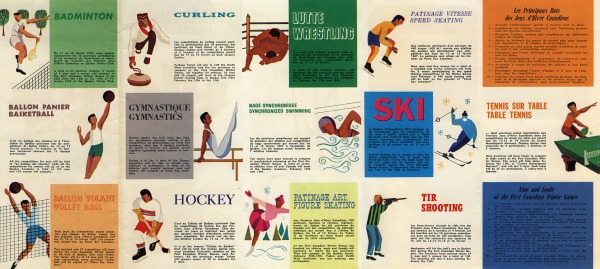
The first Canada Games in 1967 were conducted with panache and a special joie de vivre. Quebec City, known for its hospitality and festivities, created a truly Canadian experience. Despite a snowstorm that dropped 76 cm of snow on Quebec City and a drop of 40 degrees in temperature, the Game organizers produced a very successful Games and established a benchmark for an event that would serve as a stepping stone for Canada's next generation of athletes for years to come.
Collection: Canada's Sports Hall of Fame
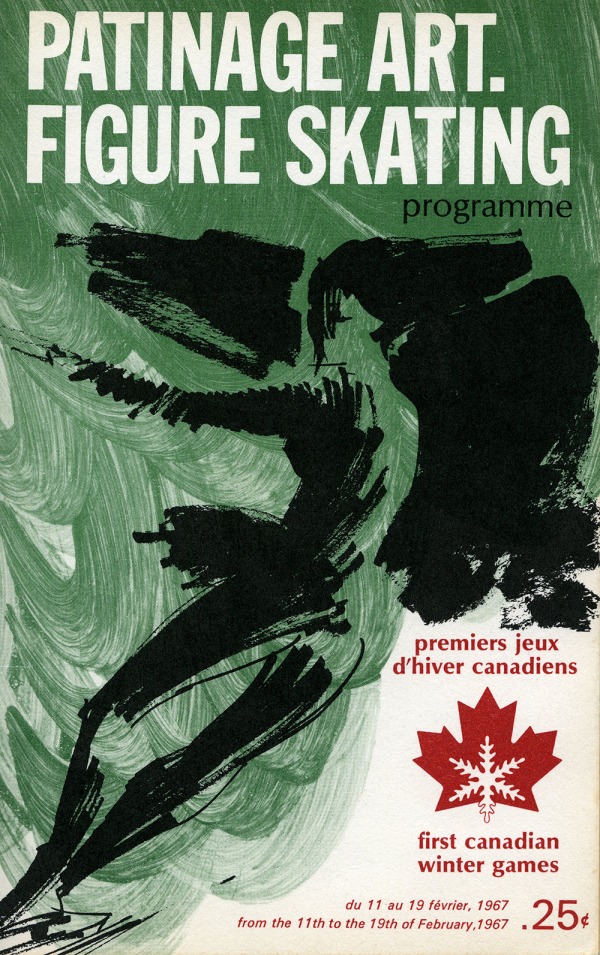
The Canada Games were created to be a uniquely Canada competition with the goal to develop athletes at different levels in their sport. The figure skating program was held for two groups, with the winner of the 'A' group being recognized as the champion. The Games allowed for the continued development and evaluation of athletes while ensuring they were ready for competition.
Collection: Canada's Sports Hall of Fame
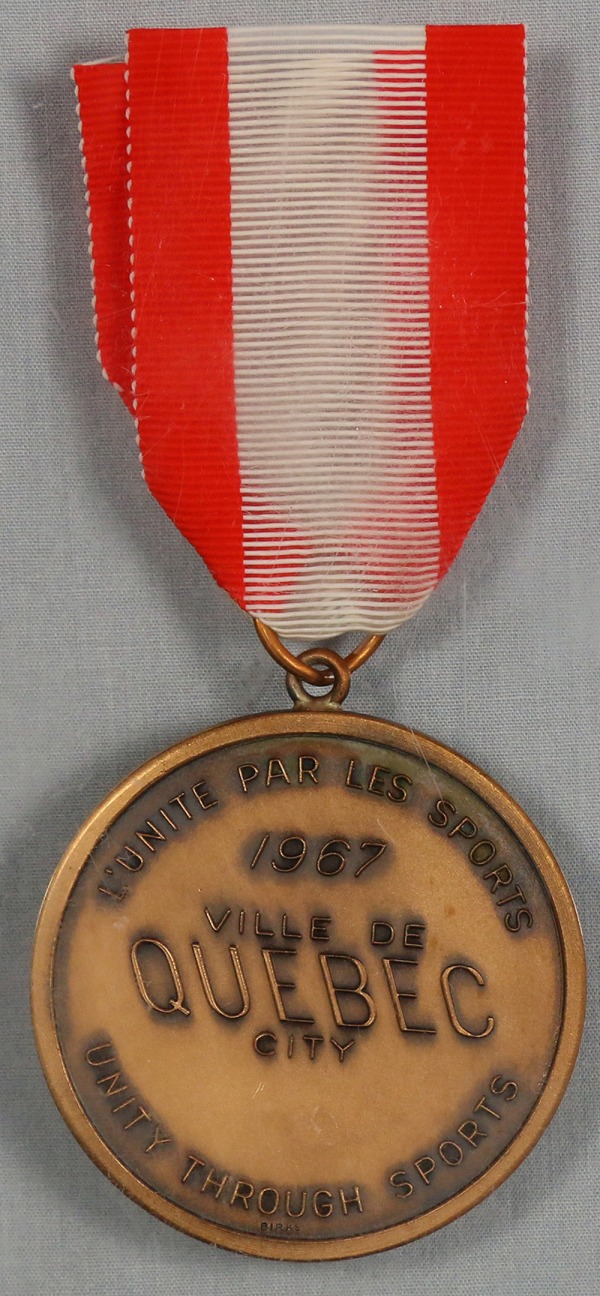
This original bronze medal incorporated the theme of unity through sport. One of the original aims and goals of the Canada Games was to stimulate enthusiasm for amateur sport throughout the country. By including sports that were not considered at the time to be main stream, the Canada Games helped to increase the number of participants in these sports. Today sports such as ringette, rugby and sports for athletes with a disability such as wheelchair basketball are included.
Collection: Canada Games Council
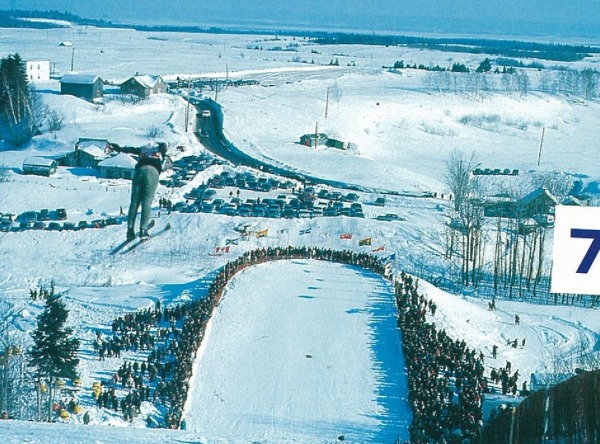
The Organizing Committee in their vision statement said that snow was the natural link between all Canadians. Appropriately these were not only the first Canada Games but the first Winter Games, starting the alternating cycle of summer and winter. Ski jumping was one of the sports enjoyed by the spectators who gathered to watch these young jumpers fly.
Collection: Library and Archives Canada
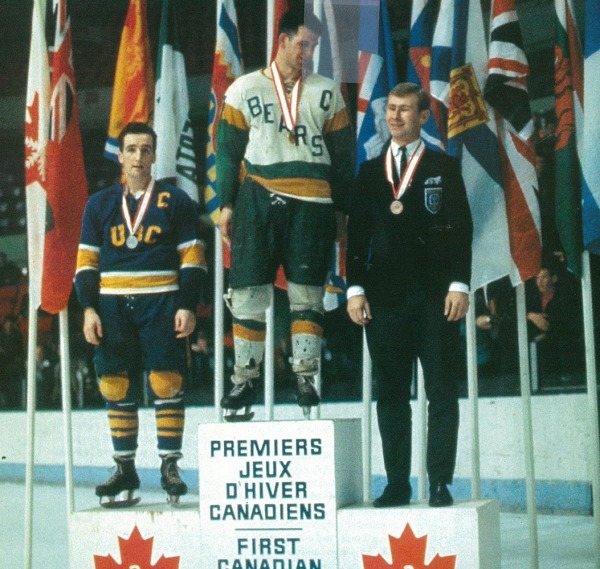
The 1967 men's ice hockey competition was held at the Colisée de Québec and was held between University teams. The winning teams were from Alberta, British Columbia and Ontario. Women's hockey was added to the schedule in 1991. Not surprisingly many of the alumni from the Canada Games have gone on to have stellar careers.
Collection: Canada Games Council
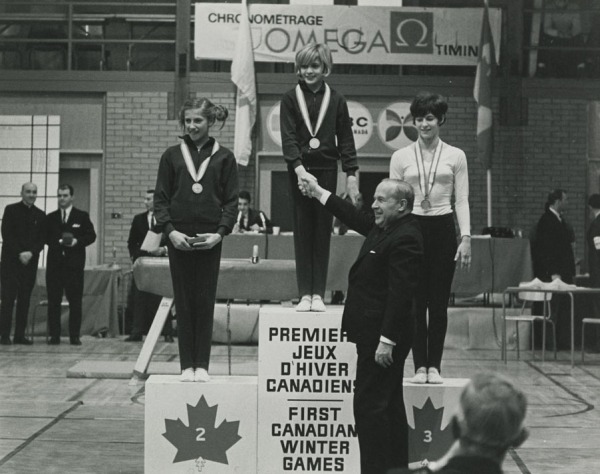
One of the stated aims of the 1967 Canada Games was to familiarize Canadian athletes to a large, multisport environment that would in turn prepare them for future international competitions. These Games became the showcase for future stars such as gymnast Teresa McDonell who went on to compete in three consecutive Olympic Games. She was presented with her gold medal in 1967 by the then Prime Minister Lester B. Pearson.
Collection: Library and Archives Canada
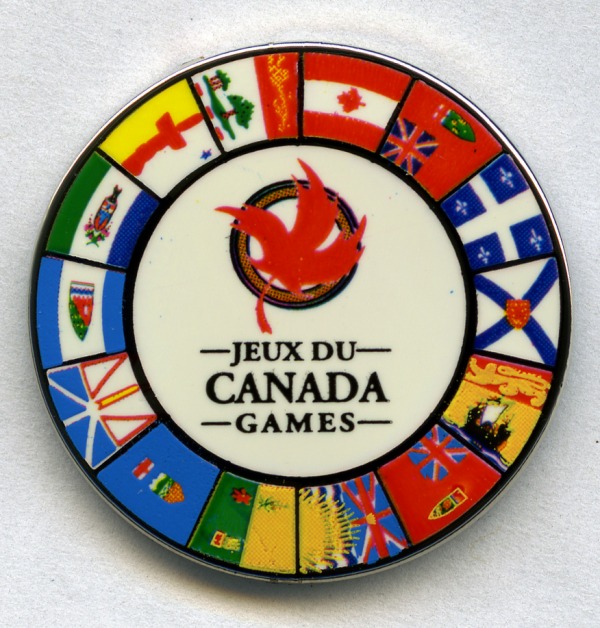
From the inception of the Canada Games they were meant to be all inclusive and to encourage young athletes from sea to sea to sea to participate. The lapel pin here includes the flags of each of the ten provinces and three territories. The Canada Games logo at the centre has a dynamic maple leaf to denote action and energy while the gold ring symbolizes the provinces and territories coming together for the Games.
Collection: Private Collection: Janice Smith
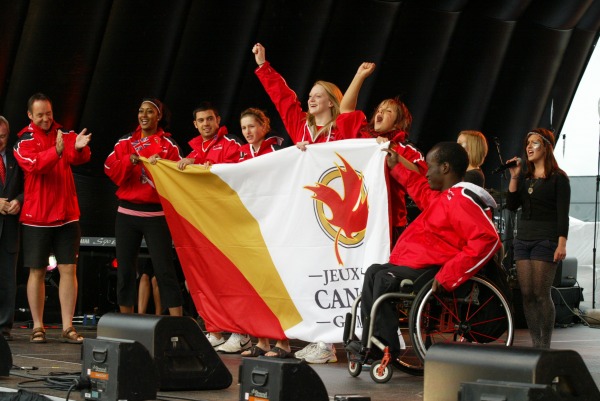
The Canada Games flag is awarded to the province with the greatest number of points from all events. It has become a treasured tradition to win the flag and the bragging rights that go with it. Team Ontario is shown celebrating their victory in this image in 2009.
Collection: Canada Games Council
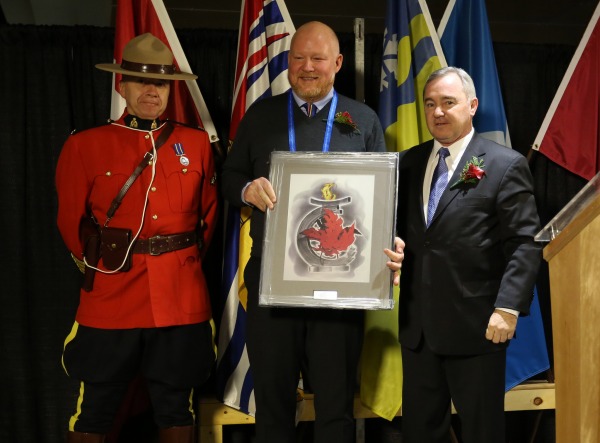
Tom Quinn, Chairman of the Canada Games Council is shown with Anthony Everett, Chairman of the 2015 Canada Games. "The Canada Games are a key stepping stone in the development of our country's next generation of Olympic, international, and professional athletes. The lasting effect the Canada Games have on the athletes who compete in them, and for the communities that host them, is an incredible accomplishment and one that is crucial to the growth of amateur sport in Canada."
Collection: Canada Games Council/quote from Tom Quinn, Chairman
Previous Next


